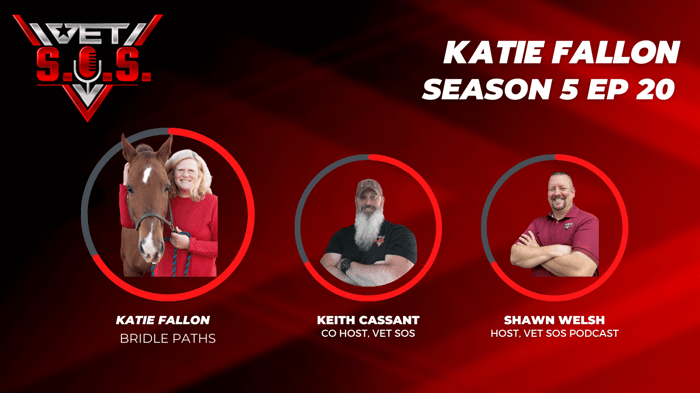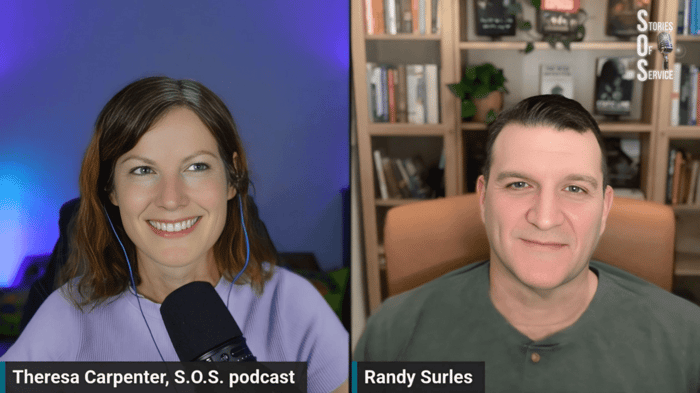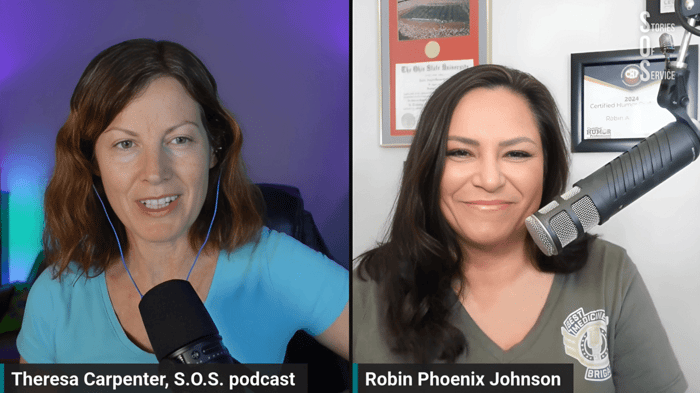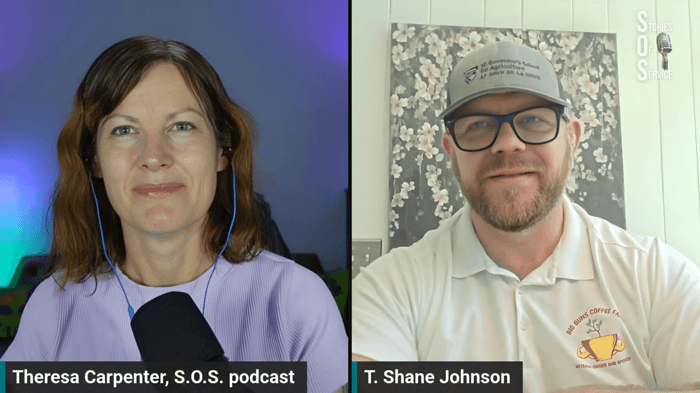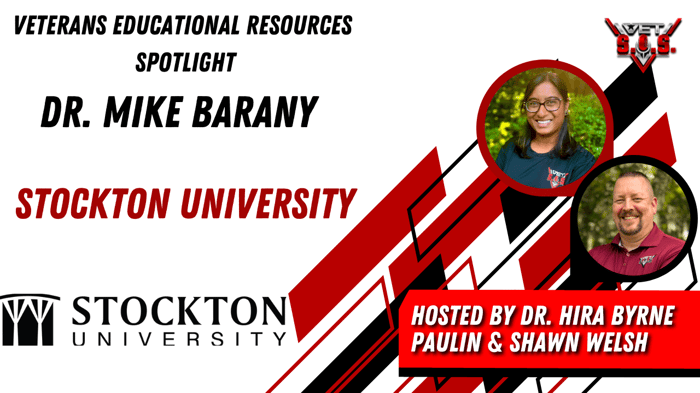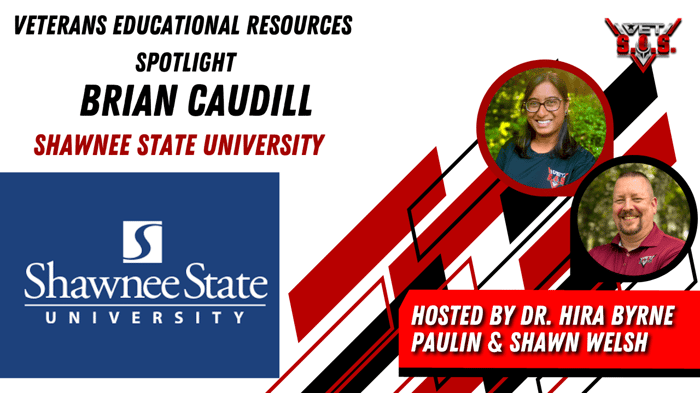Healing Through Horses: The Power of Equine Therapy for Veterans
For many veterans, the transition from military to civilian life can feel like stepping into a completely unfamiliar world. The routines, structure, and camaraderie they once relied on are gone, replaced with uncertainty, isolation, and a host of challenges—many of which are invisible to the outside world. From post-traumatic stress disorder (PTSD) to anxiety, depression, and traumatic brain injuries, the wounds veterans carry often extend far beyond the physical. That’s where equine therapy for veterans comes in.
In a powerful episode of the VET S.O.S. podcast, hosts Shawn and Keith spoke with Katie Fallon, Founder and Executive Director of Bridle Paths, a Virginia-based nonprofit providing equine-assisted services. Katie shared her personal journey, the science behind working with horses, and the incredible healing outcomes she’s witnessed through equine therapy for veterans and their families.
A New Mission: From International Relations to Healing with Horses
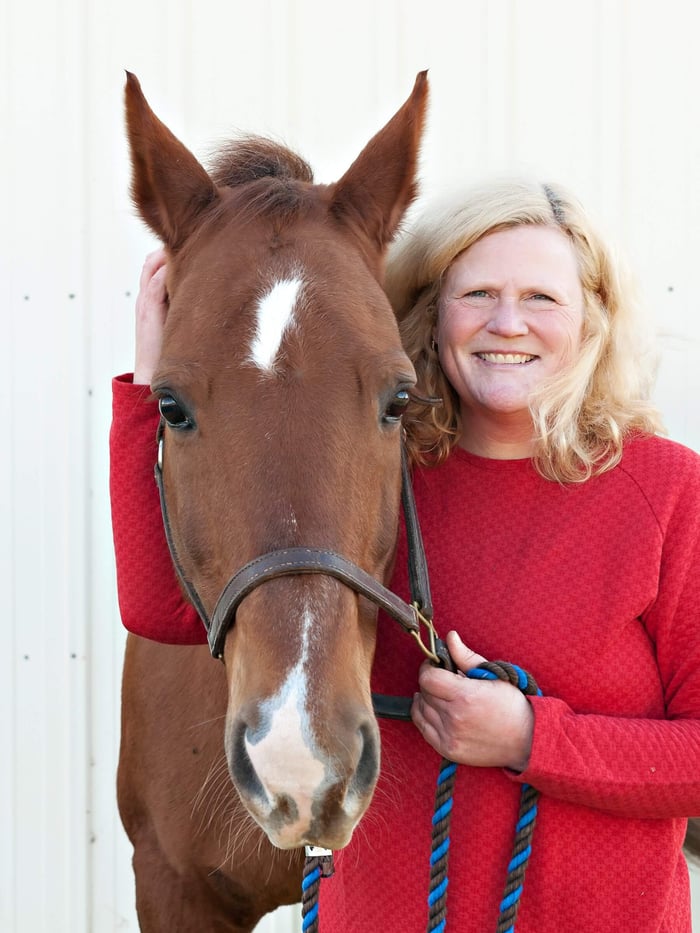 Katie Fallon
Katie FallonKatie Fallon didn’t start her career in therapy or horses. In fact, she began in the world of international relations and financial regulation, working downtown in power suits and corporate environments. Life took a dramatic turn when her daughter was born eight weeks early and required multiple brain surgeries in her early years.
As a mother navigating the world of special needs care, Katie was forced to rethink her career and purpose. Over time, that path led her to the world of equine-assisted therapy—a career change that not only aligned with her passions but allowed her to help others navigate life-altering transitions of their own.
Today, she holds certifications from PATH International and EAGALA (Equine Assisted Growth and Learning Association) and has over 20 years of experience in the field. Through her work at Bridle Paths, Katie now supports veterans, military families, and civilians coping with emotional, psychological, and cognitive challenges.
What Is Equine Therapy for Veterans?
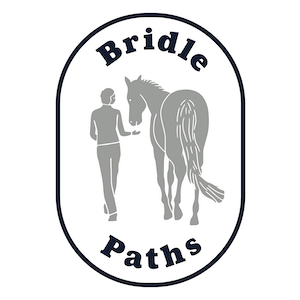 Equine therapy for veterans involves using horses as part of a structured therapeutic program to support emotional and psychological healing. At Bridle Paths, the services offered include:
Equine therapy for veterans involves using horses as part of a structured therapeutic program to support emotional and psychological healing. At Bridle Paths, the services offered include:
Equine-Assisted Psychotherapy: A licensed mental health professional and equine specialist work together with clients in a horse-centered environment to process trauma and improve mental health.
Equine-Assisted Learning: Veterans engage with horses to build communication skills, self-awareness, emotional regulation, and confidence.
Adaptive Riding: Veterans learn horseback riding with adaptations based on their physical or emotional needs, helping to rebuild trust, coordination, and a sense of control.
Unlike traditional talk therapy, equine therapy for veterans is immersive, physical, and emotional. Horses respond honestly to human emotions, helping veterans reconnect with their feelings in a safe, non-judgmental way.
Why Horses?
So, why horses? Why not dogs, or another form of animal-assisted therapy?
Katie explains that horses are prey animals—meaning they are hyper-aware of their environment. They can sense changes in heart rate, body tension, and emotion. Their survival depends on reading the room accurately. For veterans who may feel misunderstood by people, horses offer a kind of non-verbal validation that’s both calming and affirming.
Veterans often describe an immediate connection when they enter the arena. The horses sense what’s happening emotionally, even if the veteran hasn’t said a word. That’s what makes equine therapy for veterans so unique and effective: it bypasses the need for verbal expression and goes straight to emotional truth.
“They meet you where you are,” Katie says. “You don’t have to fake it. You don’t have to say you’re okay if you’re not. The horse knows.”
From Fear to Freedom: A Veteran’s First Ride
Co-host Keith shared his own unexpected experience with horses. For the first time, he went on a four-hour trail ride. What he thought would be a simple outdoor activity turned into something far more profound.
Initially filled with fear, Keith described how the horse’s power and energy overwhelmed him. But as the ride continued, something shifted. The connection grew stronger, his fear subsided, and he became more present. Even though it wasn’t a formal therapy session, the experience made a lasting impact.
That’s a common story among veterans who try equine therapy—it opens doors they didn’t know existed and unlocks parts of themselves long buried by military culture or trauma.
The Science Behind Equine Therapy for Veterans
Katie and her team at Bridle Paths aren’t just relying on anecdotal stories—they’re also collecting clinical data. Through funding from the VA Adaptive Sports Grant, Bridle Paths runs an eight-week program called “Making the Connection.” It’s specifically designed for veterans and service members dealing with trauma and invisible injuries.
The program shows clinically significant reductions in PTSD symptoms and improved psychological flexibility, which is a key factor in emotional resilience.
One reason the therapy works is because of how it impacts the nervous system. Horses encourage nervous system regulation, helping clients move out of fight-or-flight responses and into a calmer, more grounded state. That shift allows veterans to re-engage their prefrontal cortex—the logical, problem-solving part of the brain—and begin processing trauma in a safe and meaningful way.
In other words, equine therapy for veterans helps them move from reaction to response, from isolation to connection.
Supporting the Whole Family
Bridle Paths recognizes that trauma doesn’t just affect one person—it impacts the entire family. That’s why the organization also offers equine therapy for military spouses and children, using private donations to fund this crucial work.
Veterans often request that their spouses or partners attend sessions too, noting how much it helps to share the experience. For couples navigating the emotional aftermath of service, equine therapy can be a powerful tool for rebuilding communication, trust, and connection.
“Nothing happens in a vacuum,” Katie explains. “If one person serves, the whole family serves.”
The Horses Themselves
Bridle Paths is home to 11 horses, each with a unique personality and background. Many come from second or third careers—some were racehorses, others show horses. Now, they serve a different purpose: healing.
Interestingly, not all therapy horses are calm and cuddly. Some are anxious or even grumpy—but that makes them even more relatable. Veterans often see themselves reflected in these horses, and learning to interact with them becomes a metaphor for human relationships and self-discovery.
Katie is quick to point out that equine therapy for veterans is not about controlling or dominating the animal. It’s about building partnership, trust, and mutual respect—lessons that apply far beyond the barn.
How to Access Equine Therapy for Veterans
Bridle Paths is located in Leesburg, Virginia, and serves veterans from across the DC, Maryland, and Virginia region. If you’re in the area, you can:
Apply for the “Making the Connection” program
Volunteer at the facility
Donate to help sponsor veteran and family sessions
If you’re not in the area, Katie recommends checking out:
www.eagala.org – to find equine-assisted psychotherapy programs nationwide
www.pathintl.org – for certified therapeutic riding centers
Be sure to look for programs that are trauma-informed and staffed by certified professionals.
Final Thoughts
Equine therapy for veterans isn’t just an alternative treatment—it’s a powerful, evidence-based approach to healing that taps into something deep, primal, and transformative. Horses don’t care about your resume, your rank, or what you’ve been through. They care about your presence, your honesty, and your willingness to connect.
For veterans navigating the complex challenges of post-military life, equine therapy offers more than comfort—it offers hope, growth, and a path forward.
As always, remember the VET S.O.S. motto:
Don’t drown in the sea of transition. Grab the VET S.O.S. lifeline.
